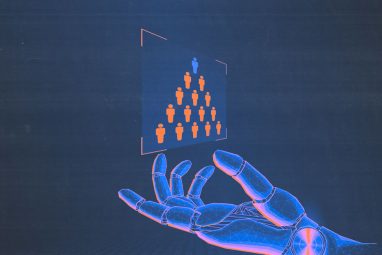Why Stressed Candidates Make Better Cross-Cultural Hires
New research shows that individuals who experience more stress in unfamiliar cultures are faster at learning and adapting to social norms.
Topics
News
- Adani Power Sets Up Nuclear Subsidiary
- Musk Unveils xAI Overhaul, Lunar AI Ambitions
- Former GitHub CEO Dohmke Raises $60 Million to Build AI Code Infrastructure
- Leadership Shakeup Deepens at xAI as Two Co Founders Exit
- India Slashes Social Media Takedown Window to Three Hours
- Cisco Moves to Relieve AI Data Center Gridlock With New Chip

When interviewing job candidates, you may look for evidence that they stay calm under pressure, and interpret signs that they are easily stressed as red flags. But our recent research shows that for cross-cultural positions, those red flags might actually signal your best hires.
Across five studies, we used a variety of methods to measure how easily people got stressed. We then asked them to learn the social norms of an unfamiliar culture through trial and error. We consistently found that individuals who were more easily stressed learned the novel cultural norms faster. Importantly, their stress levels declined as they learned the norms.
Although our studies focused on learning interpersonal norms in unfamiliar national cultures, our findings are relevant to other situations such as adjusting to a new organizational culture, interacting with partners from other backgrounds, and relocating abroad for an expat assignment. Our findings point to three recommendations for managers.
First, managers should routinely monitor employee stress during times of transition or upheaval. Upon detecting signs of stress, they can provide timely feedback to help turn early discomfort into faster learning.
Second, managers need to recognize that stress is not an indicator of weakness, and is to be expected when learning something new. Employees’ stress will likely moderate once they have mastered the new knowledge or skills.
Third, managers should monitor and distinguish between adaptive stress that drives development and chronic stress that leads to burnout. Acute stress in a new cultural environment can be beneficial, but if that stress persists without corresponding adaptation, it may spiral into burnout.
References (1)
1. S. Madan, K. Savani, P.H. Mehta, et al., “Stress Reactivity and Sociocultural Learning: More Stress-Reactive Individuals Are Quicker at Learning Sociocultural Norms From Experiential Feedback,” Journal of Personality and Social Psychology 128, no. 6 (June 2025): 1292-1314, https://doi.org/10.1037/pspi0000487.






